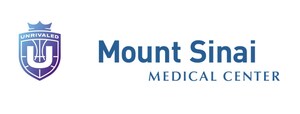
September is National Sickle Cell Awareness Month
Mount Sinai Experts Stress Importance of Healthy Habits to Prevent Health Crises
NEW YORK, Sept. 1, 2015 /PRNewswire-USNewswire/ -- September is National Sickle Cell Disease (SCD) Awareness Month, and Mount Sinai Health System is reminding the community of the importance of newborn screening performed soon after birth with a blood test, education for families with this inherited condition and comprehensive care for children and adults including regular visits with a specialist can reduce complications of this illness.
SCD is the most commonly inherited blood disorder in the United States, affecting 100,000 people, and millions more worldwide. The disease primarily affects people of African, Hispanic, Mediterranean, Middle Eastern and South Asian ancestry.
"Sickle cell disease is devastating for patients and their families," said Jeffrey Glassberg, MD, MA, Assistant Professor of Emergency Medicine, Hematology and Medical Oncology, Icahn School of Medicine at Mount Sinai. "It's a chronic disorder causing pain in the extremities and back, infections, organ failure and other tissue damage, skin infections, loss of eyesight, severe blood clots and strokes. Patients learn to function in a constant state of pain and when that pain becomes debilitating, they often end up in the emergency room," said Dr. Glassberg, also Associate Director of the Comprehensive Sickle Cell Program at The Mount Sinai Hospital.
"Patients with SCD are more likely to live full lives if they undergo regular checkups, prevent infections and develop healthy habits," said Jena Simon, MS, FNP-BC, RN, also of the Comprehensive Sickle Cell Program.
Dr. Glassberg, Jena Simon, and patient are available for interview.
Tips to Staying Healthy
- Get regular checkups. Regular health checkups can help prevent some serious problems.
- Prevent infections. Common illnesses, like influenza quickly can become dangerous for both children and adults with SCD. The best defense is to get a flu shot every fall and to stay up-to-date on other immunizations.
- People with SCD should drink 8 to 10 glasses of water every day and eat healthy food. They also should try not to get too hot, too cold, or too tired.
- Look for clinical studies. New clinical research studies are beginning all the time at Mount Sinai and elsewhere, with the goal of finding better treatments for SCD. Study participants gain early access to experimental medicines and treatments.
- Get support. People with SCD should find a patient support group or other organization in the community that can provide information, assistance, and support.
Sickle Cell Disease Facts & Figures:
- SCD is an inherited blood disorder that can cause severe pain and permanent damage to the brain, heart, lungs, kidneys, liver, bones and spleen.
- SCD is most common in Africans and African-Americans. It is also found in other ethnic and racial groups, including people from South and Central America, the Caribbean, Mediterranean countries, and India.
- More than 2 million people carry the sickle cell gene that allows them potentially to pass the disease on to their children. People of African, Hispanic, Mediterranean, Middle Eastern, and Indian descent may want to be tested for the gene before having children. You can carry the gene and not have any signs or symptoms of SCD. Both parents have to have the gene to have a child with SCD.
SCD Awareness Events, The Mount Sinai Hospital campus, 1468 Madison Avenue (at 100th St.):
- Lecture: Guided Imagery for Sickle Cell Pain Management - Friday, September 11, 11 am to Noon, Stern Auditorium.
- Sickle Cell Community Engagement Day - Saturday, September 12, Noon to 4 pm, Hatch Auditorium and Guggenheim Pavilion Lobby. Education, free Bone Marrow Drive, IMPACT Repertory Theatre performance.
- NYC Annual Sickle Cell A Walk in Central Park - Saturday, September 19, 11 am, Central Park (near Naumberg Bandshell)
About the Mount Sinai Health System?
The Mount Sinai Health System is an integrated health system committed to providing distinguished care, conducting transformative research, and advancing biomedical education. Structured around seven hospital campuses and a single medical school, the Health System has an extensive ambulatory network and a range of inpatient and outpatient services--.from community-based facilities to tertiary and quaternary care.
The System includes approximately 6,100 primary and specialty care physicians; 12 minority-owned free-standing ambulatory surgery centers; more than 140 ambulatory practices throughout the five boroughs of New York City, Westchester, Long Island, and Florida; and 31 affiliated community health centers. Physicians are affiliated with the renowned Icahn School of Medicine at Mount Sinai, which is ranked among the highest in the nation in National Institutes of Health funding per investigator. Seven departments at The Mount Sinai Hospital and one at the New York Eye and Ear Infirmary (NYEE) ranked nationally in the top 25 in the 2015-2016 "Best Hospitals" issue of U.S. News & World Report. Mount Sinai's Kravis Children's Hospital also is ranked in seven out of ten pediatric specialties by U.S. News & World Report.
For more information, visit http://www.mountsinaihealth.org/ or find Mount Sinai on Facebook, Twitter and YouTube.
Media Contacts: Lucia L. Lee, 646-605-5940, [email protected]
This news release was issued on behalf of Newswise(TM). For more information, visit http://www.newswise.com.
SOURCE Mount Sinai Medical Center







Share this article